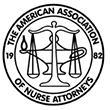Our communications are not intended to deal exclusively with mandatory reporting requirements, whether applicable or not. The Administrative Procedure Act (APA) is found in the California Government Code, section 11340 et seq. This statute establishes “rulemaking” procedures and standards for California state agencies. Additionally, California regulations must be in compliance with regulations adopted by OAL (see California Code of Regulations, title 1, sections 1-280). The California Code of Regulations is the official publication of regulations adopted, amended or repealed by California state agencies. Reporting requirements vary from state to state and may be different from one California Regulatory Agency to another. The mandated reporting can be found in the particular license “Practice Act” as well as the rules and regulations that apply to the profession or occupation.
Example for a Pharmacist: ANY controlled substance loss, small or large, must be reported to the California Board of Pharmacy (BOP) within fourteen (14) calendar days from the date of loss when it was a result of the theft by a licensed employee, or when it is from any other type of loss, within thirty (30) calendar days.
Example for an RN: is the reporting of convictions by Applicants for an RN license issued by the Board of Registered Nursing (BRN). All prior convictions substantially related to the duties, functions and/or qualifications of a registered nurse are reviewed by the BRN on a case by case basis. Since July 1, 2020, applicants are not asked about their prior criminal conviction history, but they will be discovered upon the Board’s receipt of an individual’s fingerprint results.The Board will not generally take action on convictions older than seven years, however, there are several exceptions, such as a serious felony that includes approximately 42 different crimes. Upon renewal of a nurse’s license, the BRN requires nurses to disclose whether they have had ANY license disciplined by a government agency or other disciplinary body; or if they have been convicted of any crime in any state, U.S. territory, military court or other country since their last renewal. Failing to disclose ANY conviction may be grounds for disciplinary action as the government will contend you falsified information required on your renewal form; this is mandatory even when a conviction is expunged. As stated earlier in this paragraph, any felony or misdemeanor conviction substantially related to the duties, functions and/or qualifications of a registered nurse can be the basis for disciplinary action.
We begin with a laser focused analysis of all of the facts and circumstances, and a pivotal strategy to develop a lengthy and comprehensive written presentation, 60 to 75 pages, so that our client is not defined by the actual and perceived conclusions regarding an underlying case. In addition, we pursue and underscore exculpatory evidence and other proof by initiating steps that minimize the risk our client is charged with unprofessional conduct &/or other grounds for disciplinary action. We do not gamble on the Regulatory Agency claiming the underlying situation is substantially related to the duties, functions and qualifications of a licensed professional or occupation. We also do not want to gamble the governmental agency may not perceive there is a basis to conclude a possible threat to the health and safety of the public; nor do we want to risk by assuming that unequivocally the underlying matter does not evince unfitness, lack of good judgment, etc.
Please note the CALIFORNIA CODE OF REGULATIONS, 16 CCR § 1444 states: [§ 1444. Substantial Relationship Criteria]. “A conviction or act shall be considered to be substantially related to the qualifications, functions or duties of a registered nurse if to a substantial degree it evidences the present or potential unfitness of a registered nurse to practice in a manner consistent with the public health, safety, or welfare Such convictions or acts shall include but not be limited to the following: [Emphasis Added; we prefer to error on the side of caution and, therefore, have provided the information herein]: (a) Assaultive or abusive conduct including, but not limited to, those violations listed in subdivision (d) of Penal Code Section 11160. (b) Failure to comply with any mandatory reporting requirements. (c) Theft, dishonesty, fraud, or deceit. (d) Any conviction or act subject to an order of registration pursuant to Section 290 of the Penal Code (Emphasis Added).
We understand a previous case may be unsettling; however, our role is to level the playing field and we do so by underscoring in a long written argument both a defense and offense. If you have a situation you would like us to be of assistance, do not hesitate to send an email [or call us at 1.619.583.0350] during our regular hours of 8:30 am to 8:30 pm seven (7) days a week.









